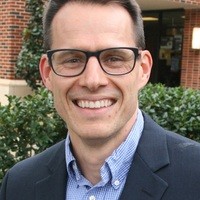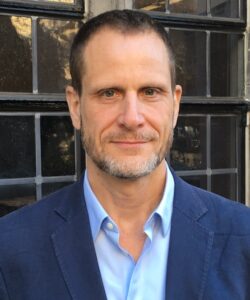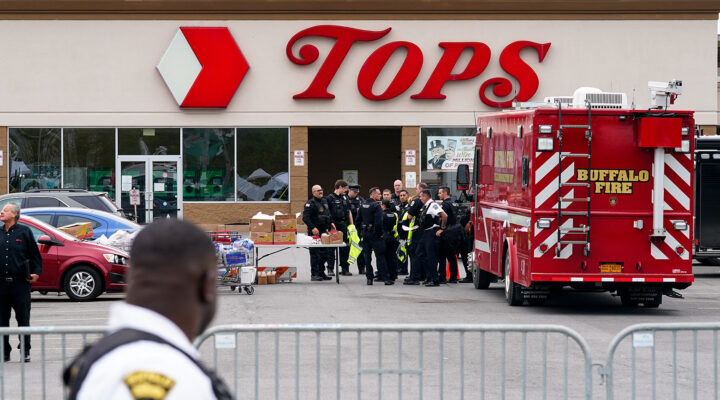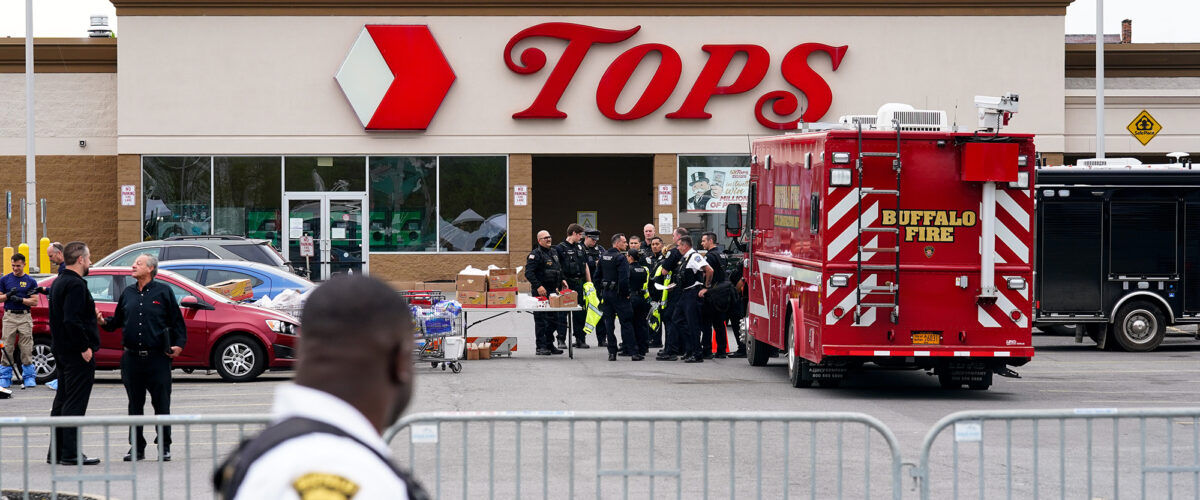The May 14 grocery store massacre in Buffalo, N.Y., was a demonstration of how white Christian nationalist ideology energizes all kinds of violence, two sociologists said during a webinar hosted by the group Christians Against Christian Nationalism.
Samuel Perry and Philip Gorski explained that the white supremacist views shooter Payton Gendron expressed in an online manifesto prior to his rampage line up with classic Christian nationalist beliefs and rhetoric even though the killer admitted to not being a Christian.

Samuel Perry
“We find that being Christian doesn’t necessarily qualify. It transcends that. This guy says, ‘I am not a Christian. I have not confessed my sins and I don’t really trust in Jesus.’ But he says he seeks to live out Christian values,” said Perry, a University of Oklahoma sociologist and co-author with Gorski of the new book, The Flag and the Cross: White Christian Nationalism and the Threat to American Democracy.
Gendron, 18, argued in his writing that it takes white genes and being a member of white culture to be truly white and, therefore, part of the normative race in America, Perry added.
“He is saying …, ‘What I really value is whiteness as characterized by this religion of Christianity ’ — as he is about to go perpetrate this act of violence on people he feels fall outside the boundaries of whiteness. White Christian nationalism is tied up in this and in who has a right to live, who has a right to be in our country.”

Philip Gorski
Perry and Gorski, a sociologist at Yale University, were hosted by Amanda Tyler, executive director of Baptist Joint Committee for Religious Liberty. Tyler asked the pair questions about their sociological research into the emergence and nature of white Christian nationalism, the attitudes and tactics typically displayed by its adherents, its basic tenets, and how and where it can currently be seen to be emerging in American religious and civic life.
Gendron killed 10 and injured three in a grocery store located in a predominantly Black Buffalo neighborhood. Most of his victims were Black. The community and victims chosen for the attack line up with his espousal of the Great Replacement Theory, a white supremacist notion that whites are being “replaced” by people of color, including immigrants, Gorski said.
“For some Christians, their idea of faith has always been wrapped up with race and opposition to some sort of cultural or racial other — Native Americas early on, then enslaved Africans, then Mexicans, then Irish and Italian Catholics and humanists and secularists and Muslims.”
These and other white Christian nationalist fears are anchored in other core beliefs, or what Gorski called the “deep story” of their movement.
“It’s this idea that America was founded as a Christian nation, that all the founders were orthodox Christians, that the founding documents were based on biblical principles, that God gave the United States some kind of special mission, and in order to bless that mission, God gave the United States incredible power and prosperity,” he said. “And it’s based on the belief that that power and prosperity are always in danger by the presence of non-Christians or non-whites or whoever the other of the day happens to be.”
“It’s based on the belief that that power and prosperity are always in danger by the presence of non-Christians or non-whites or whoever the other of the day happens to be.”
Perry added that the “holy trinity” of white Christian nationalists is freedom, order and violence.
“The way that works with white Christian nationalism is simple: the people in power — white Christian men, primarily — get the freedom. It is their country to do with as they will. They have a calling from God, and this country rightfully belongs to them. Everybody else gets the order, and that is non-whites, non-Christians, immigrants and often women. Included in that are sexual minorities, as well. And when they violate the order, they get violence and white Christian men are justified in perpetrating that violence.”
But in recent years, “being Christian” has taken on other-than-religious meaning for some in the movement, Perry said.
“You have one contingent that is more evangelical Christian nationalist, that really does espouse a deeper theology that this is God’s country. They have a more sophisticated view of Christian nationalism. And you have folks for whom ‘Christian’ is strictly a dog whistle. It is ethnic code for ‘people like us.’ Distinguishing between those two is difficult. You see them in the crowd at the same conferences and re-tweeting one another on Twitter. You don’t need to espouse the beliefs anymore; you just have to be a in favor of white Christian ethno-culture.”
While most white Americans never would identify as Christian nationalists, research for the book shows that a majority share in these beliefs, nonetheless.
“When you ask white Americans questions about Christian nationalism, whether the nation should be a Christian nation, whether they think the federal government should institutionalize our Christian identity and privilege Christianity, they tend to think nostalgically to a time when people like us, the right people, were in charge,” Perry said. “It seems to elicit ideas of anti-democratic, even authoritarian violence connected to wanting to make sure the nation stays for people like us.”
Related articles:
Interdenominational panel warns of extreme danger of Christian nationalism
BJC offers free downloadable report explaining January 6 in light of Christian nationalism


